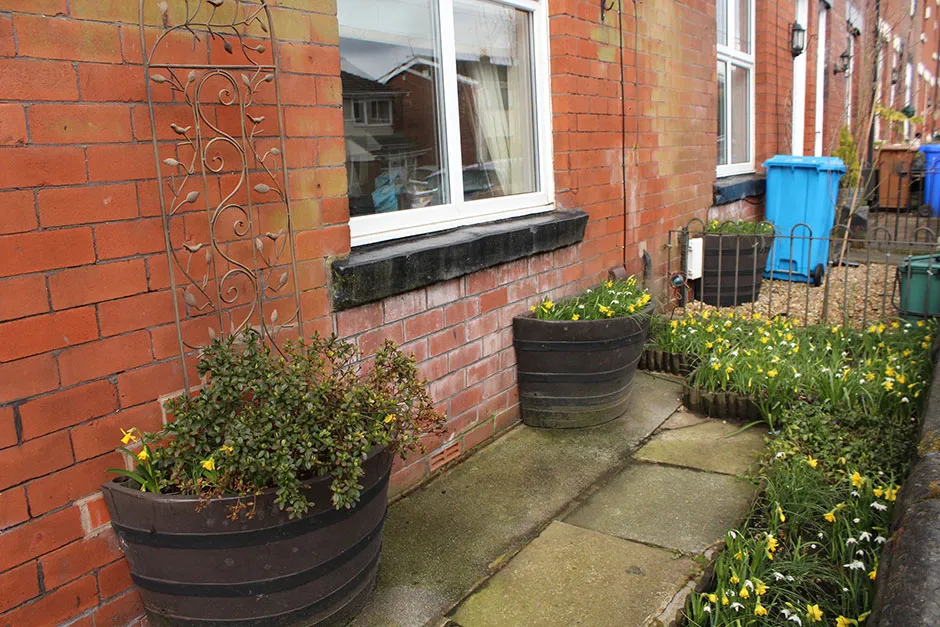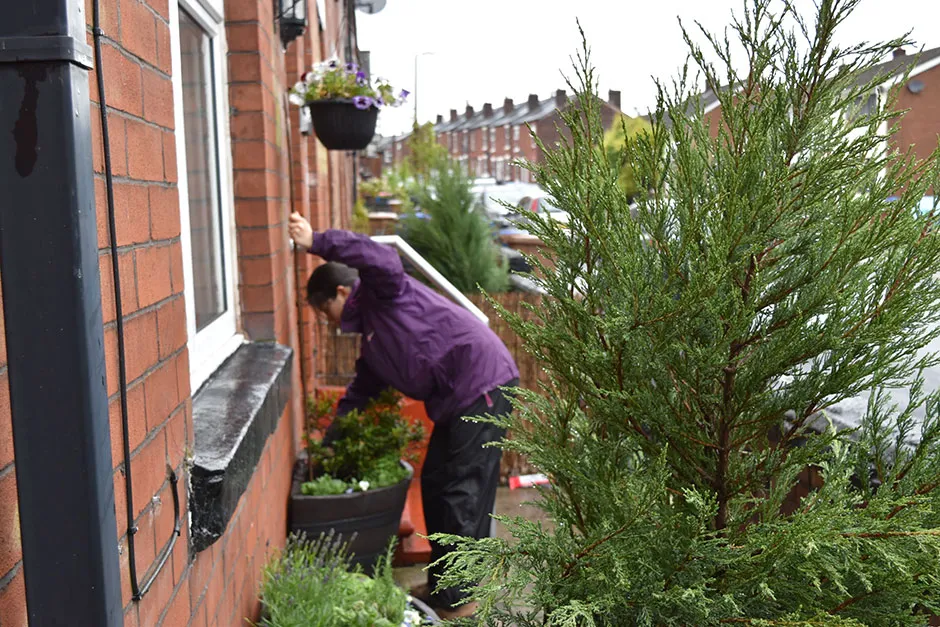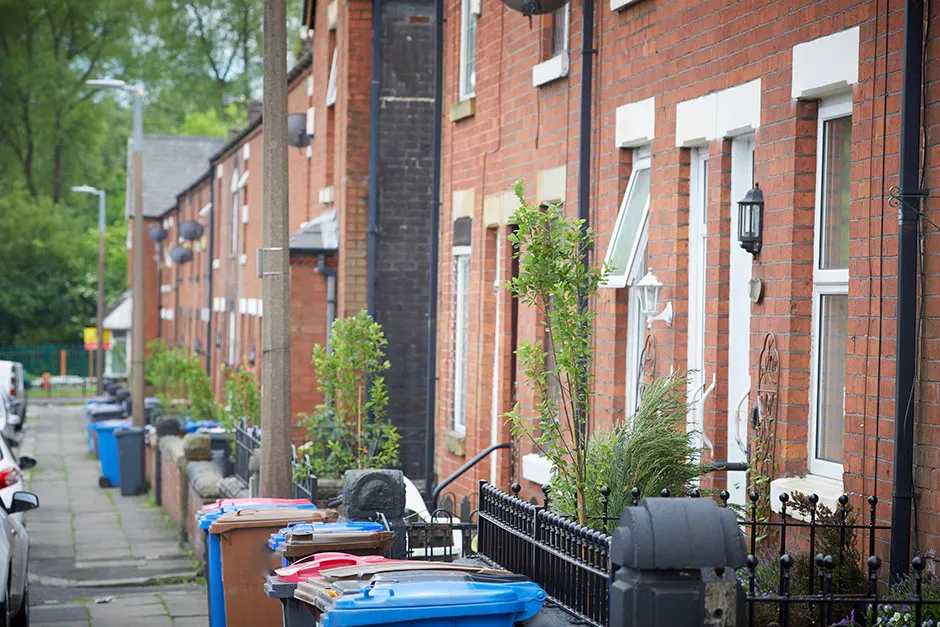Adding just a few plants to a bare front garden can lower stress levels and help people feel happier, research suggests.
Researchers introduced ornamental plants such as juniper, azaleas, clematis, lavender, daffodil bulbs and petunias into small bare front yards in economically deprived streets in Salford, Greater Manchester.

The study by the Royal Horticultural Society and the universities of Sheffield, Westminster, and Virginia in the US then measured the stress levels of residents taking part in the scheme and asked them how they felt.
Some 42 residents with 38 gardens were involved in the study, with one group starting a year later to act as a control group.
Residents could each receive one tree, one shrub, one climber and enough smaller plants, bulbs and bedding plants to fill two containers. They were not required to look after the plants, as the containers were “self-watering” with a 22-litre in-built reservoir of water, but they were encouraged to take part in gardening their plot, with help from the RHS advisory team.
Read more about gardening:
The team measured residents’ cortisol – the key stress response hormone – before and after the plants were added, and found a higher proportion of healthy daytime cortisol patterns after planting, suggesting they had a better health status.
The research found only 24 per cent of residents had healthy cortisol patterns before the plants went in, but over the year following the greening of the front gardens, this increased to 53 per cent.
More than half of the residents in the trial said the garden helped them to feel happier, while two fifths reported the garden help them to relax and just over a quarter said it helped them get closer to nature.

More in-depth interviews showed the garden motivated people to do more gardening and renovate other areas of their home and garden. They also found the garden relaxing and that it gave them a sense of pride in their home, and all of them reported the plants made them feel more cheerful and lifted their spirits when they looked at them.
“We can now further evidence the vital need to incorporate plants into our front gardens and domestic spaces," said Dr Lauriane Suyin Chalmin-Pui, who conducted the research as part of her PhD and who is now an RHS wellbeing fellow.
“This will require a change in the way we strategise, design, plan and build our living spaces.”

She added: “The stress reduction data is startling, in that we found such a significant response with just a relatively small number of plants.
"Now we know that access to even a tiny patch of nature has beneficial effects for our health. Re-greening our neighbourhoods is really important.”
Reader Q&A: Is it true that you shouldn’t keep plants in the bedroom?
Asked by: Jessica Lees, Ipswich
Some people worry that plants in the bedroom will cause carbon dioxide (CO2) poisoning, but this is an urban myth. It’s true that when you turn off the light, the plant no longer has a source of energy, and so photosynthesis stops. This means that it no longer takes in CO2.
Meanwhile, in the dark, the plant continues to respire – a process which releases CO2 (the exact quantity of which depends on the size of your plant and its species). However, any plant small enough to fit in your bedroom produces far less carbon dioxide than a sleeping human, and is perfectly safe to share a room with.
Read more: